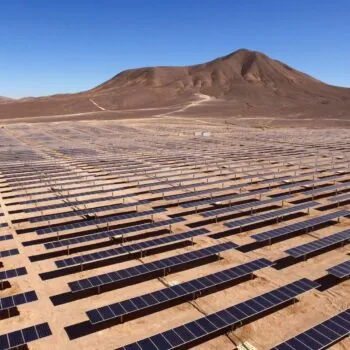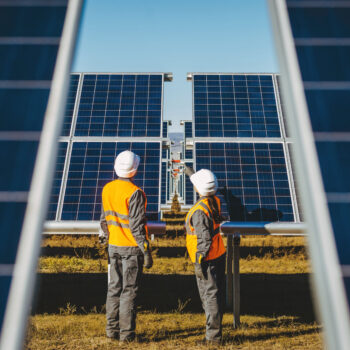More than 10 years ago, the EU launched its Common Foreign Security Policy, following a meeting of leading policy makers and practitioners in security issues, especially conflict prevention and crises response.
Since then, the European Commission continues to bring these experts together bi-annually to continue the discussions. Following the 2007 review of the European Security Strategy, there was consensus that the discussions require wider, coherent, timely and more comprehensive focus on conflict and crises.
Nick Mabey attended one such meeting recently, entitled ‘Making the Difference: Strengthening Capacities to Respond to Crises and Security Threats’ in Brussels. As rapporteur to the session focusing on climate change and its links to security, Nick Mabey provides his assessment of the discussions, and recommendations, below.
Nick also recently presented at the European Commission’s Green Week 2009 on Climate Change and International Security; his presentation is available to download above.
Rapporteur’s Report of Session on Climate Security, 4th June 2009
Context
1. Uncontrolled climate change would result in 5-7degrees C global temperature rise by 2100. Making the lives of billions of people unviable in their current homes, disrupting global food supplies and causing many millions of deaths. The security impacts of these changes cannot be contained and ‘adaptation’ will not be a global option. There is no guarantee that current levels of security and economic openness can be maintained even in the richest countries under this scenario. Avoiding a high risk of this scenario requires global greenhouse gas emissions to peak between 2015 – 2020. Without a substantive agreement at Copenhagen this year this will be unobtainable.
2. The impacts of climate change on security and livelihoods are already with us. Even if aggressive mitigation action is agreed this year and fully implemented, lags in natural systems mean that the impacts of climate change will continue to worsen at the same pace for at least another 40 years. Responding to these emergencies will overwhelm already overstretched humanitarian and peace building budgets. Climate change will increasingly act as a risk multiplier to stability and peace in fragile states which lack the political, economic and technical resilience to adapt peacefully. Sweden may be able to adapt peacefully to climate change pressures, but very few countries in today’s world are like Sweden. The EU’s neighbourhood is particularly vulnerable, with a large number of states which are both fragile and climate vulnerable. EU development aid needs to incorporate climate inside poverty reduction and peace building programmes.
3. It has been said that climate changes everything and that is true for security.
Climate change does not just increase instability and conflict risks – it must be addressed in many other foreign policy and security areas if they are to succeed, For example, climate change and climate policy will have profound impacts on instability and security in Afghanistan; EU-Russia energy relations; nuclear proliferation; new Arctic border and resource claims; trans-boundary water and fisheries disputes; extremism; extremism and the legitimacy of international systems. Understanding and responding to the impacts of climate change must become a standard part of security sector analysis and policy generation.
4. The time to respond to these growing threats is now. Excuses that climate change predictions are uncertain are irrelevant. Climate change projections are at least as accurate, and usually better, than any other information used in medium to long term security planning. Our understanding of climate and conflict links is at least as good as analysis of other political and social drivers of instability.
5. The real challenge is that our current security systems are very poor at responding to these types of risks and threats even when analysis is clear. Too often we wait until events unfold because our institutions cannot effectively respond to early warning of risk. We need to shift from a reactive to a risk management approach in order to efficiently and effectively reduce and manage climate change security risks in the coming decades. We need to motivate greater investment in building country resilience from the bottom-up and through stronger international and regional systems. This will require new tools for supporting decisions; new expertise for managing complex risks; new incentives for multi-disciplinary working, cooperation and mainstreaming; and new budgets for delivering joined-up responses across institutions.
Implementing these reforms will bring additional benefits beyond the climate security issue as many other security issues require these type of responses. Similar reforms have failed in the past because of entrenched cultures and interests. Perhaps it will take an issue as big as climate change to generate the political will to drive some of the necessary institutional changes in how we secure stability, peace and security.
Recommendations:
1. EU should continue its leadership in climate security by fully implementing and funding institutionalisation of the actions in the December 2008 EU Climate Security Route map.
2. In support of an ambitious ‘Global Climate Deal’, the EU security community should draw up a clear analysis and statement outlining: “What is needed at Copenhagen to deliver European Climate Security”. This should be discussed with partners, especially in the US, China, India and South Africa, aiming for some agreed international positions at the Swedish Climate Security Conference planned for October 2009.
3. EU + Member States should carry out an assessment of the impact worsening climate change on humanitarian spending over the next 10-15 years. A target should be agreed for increased spending and a large shift of resources begun from reactive to preventive action which currently makes up only 5% of humanitarian spending; perhaps with an aspirational target of preventative activity making up 30% of spending by 2015?
4. Following recommendations agreed in the EU Climate Security Routemap, the EC + Member States should agree a major 2-year programme to develop multi-disciplinary planning and analysis tools for use by policy makers and field practitioners in order to better guide investment in climate resilience and risk management.
5. In the event of the Lisbon treaty passing this year, the European Council should make a strategic commitment that issues of tackling climate and resource security will be at the heart of the mission and structure of the new EU External Action service. Defining it as an organisation which will be fit for purpose to manage the complex risks of the 21st century, and not one solely rooted in the diplomatic traditions of 19th century power conflicts.


